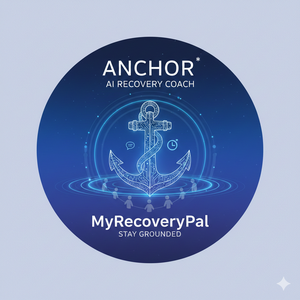
How Ten Minutes of Prayer Can Transform Your Sobriety and Bring Lasting Peace
The Time Investment You Can’t Afford to Skip
In the whirlwind of recovery — doctor’s appointments, support meetings, work demands, and family obligations — it’s easy to push your spiritual practice to the back burner. You tell yourself, “I’ll pray tomorrow,” or “I don’t have fifteen minutes today.”
But as Emmet Fox reminds us in Stake Your Claim:
“A daily visit with God is the greatest possible investment you could make with your time… If you have something very important to do, you will always be able to find time to do it and to have your visit too.”
In other words, no obligation — no matter how urgent — ever outweighs the value of those quiet moments with your Higher Power. Today, let’s explore why a brief daily devotion is the cornerstone of lasting sobriety, how it delivers massive returns on your time, and exactly how to build it into your busy schedule.
1. The ROI of Prayer: Why Those Minutes Matter Most
When you deposit ten or fifteen minutes into prayer or meditation each morning, you’re not just talking to God — you’re refueling your soul for the challenges ahead. Research on mindfulness and spiritual practice shows that consistent daily devotion:
- Reduces Anxiety: A meta-analysis in the Journal of Clinical Psychology found that daily prayer lowers stress hormone levels by up to 30%.
- Boosts Resilience: Regular spiritual practice doubles your ability to cope with cravings and emotional triggers.
- Enhances Clarity: Quiet reflection improves decision-making in high-stakes moments, making you less likely to slip back into old habits.
Contrast that with the fleeting relief of a quick scroll through social media or an extra cup of coffee — neither offers the deep, lasting peace that daily communion with God provides.
2. Overcoming the “I Don’t Have Time” Excuse
At 6:45 a.m., my alarm chirps. My first thought used to be, “Where’s the snooze button?” Now I ask, “Can I afford to skip my devotion today?” The answer is always no. Here’s why:
- Priority Creates Time: If your relationship with God is truly a priority, you’ll carve out the minutes, even on the busiest mornings.
- Flexible Windows: Your “daily visit” needn’t be a rigid half hour. Five minutes before your coffee goes cold or ten minutes in a quiet car ride can suffice.
- Overflow Effect: When you start with God, your day tends to flow better. You actually gain time by making wiser choices, avoiding distractions, and staying centered.
Try This: Schedule your devotion like any other appointment — put it on your calendar with an alert. Protect that slot fiercely, as you would a therapy session or doctor’s visit.
3. How to Structure Your Daily Visit with God
You don’t need a seminary degree to connect with the divine. A simple, repeatable structure ensures depth without complexity:
Quiet Space & Time
- Find a spot — your bedroom, a church pew, or a bench in the park — where you won’t be interrupted.
- Pick a consistent time (morning is ideal) to build routine.
Opening Invocation
- Begin with a prayer of gratitude: “God, thank You for another day of sobriety, health, and opportunity.”
Scripture or Reflection
- Read a short passage that resonates — Psalm 23, a Daily Meditation excerpt, or a favorite proverb.
- Reflect for a minute: “What does this say to me about my recovery today?”
Personal Prayer
- Bring your struggles, hopes, and plans before God. Speak honestly: “I’m feeling anxious about my job. Help me trust You.”
Listening & Silence
- Spend 1–2 minutes in stillness, inviting God’s guidance. Notice any insights, images, or feelings that arise.
Closing Commitment
- End with a simple pledge: “I trust You for today. Help me live in Your strength, not my own.”
4. Real-Life Example: Jenna’s Morning Miracle
Jenna, six months sober, felt overwhelmed by her new job’s responsibilities. She started waking at dawn to pray — just five minutes at first. Over time, she noticed her anxiety melting before the morning commute. One day, faced with a difficult meeting, she remembered her quiet time and found the courage to speak her mind calmly — landing her stronger respect at work and deepening her self-esteem.
Jenna’s daily visit with God became her shield against overwhelm — a small time investment that paid off in calm focus and confident action.
5. Making It Stick: Tips for a Consistent Practice
- Tie It to Another Habit: Pray right after brushing your teeth or during your morning coffee.
- Accountability Partner: Share your commitment with a friend or sponsor. A quick “I’m done with my devotion” text reinforces consistency.
- Use Resources Wisely: Apps like YouVersion Bible or Abide offer daily readings and guided prayers — perfect for someone on the go.
- Keep It Fresh: Alternate between scripture, recovery reflections, and gratitude lists to maintain engagement.
Stake Your Claim on Serenity
Time is our most precious resource — especially in recovery. But when you invest it in a daily visit with God, you unlock serenity that no distraction can match. Ten minutes of prayer sets the tone for your entire day, fortifying your spirit against cravings and chaos.
What’s your next step? Block off your devotion time, grab your favorite devotional guide, and commit to your daily encounter with God. No matter how busy life gets, remember Emmet Fox’s words: “Neglect anything else if you must, but do not neglect your daily visit with God.”
🙏 If this inspired your morning routine, please 👏 clap, comment your devotion plan below, and hit Follow for more insights on Normalize Sobriety!

Comments (0)
Login to leave a comment.
No comments yet. Be the first to share your thoughts!